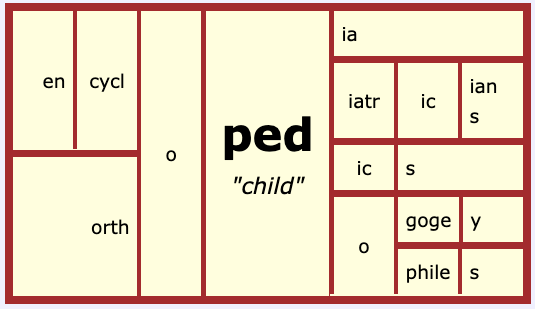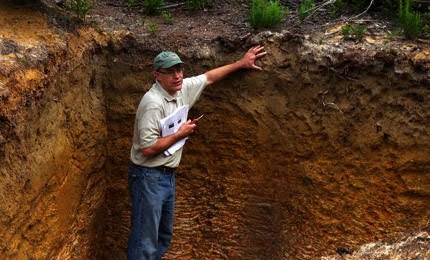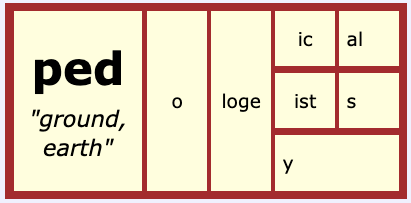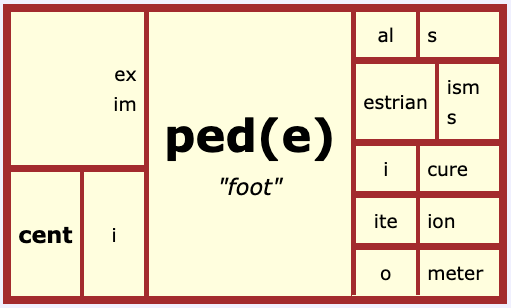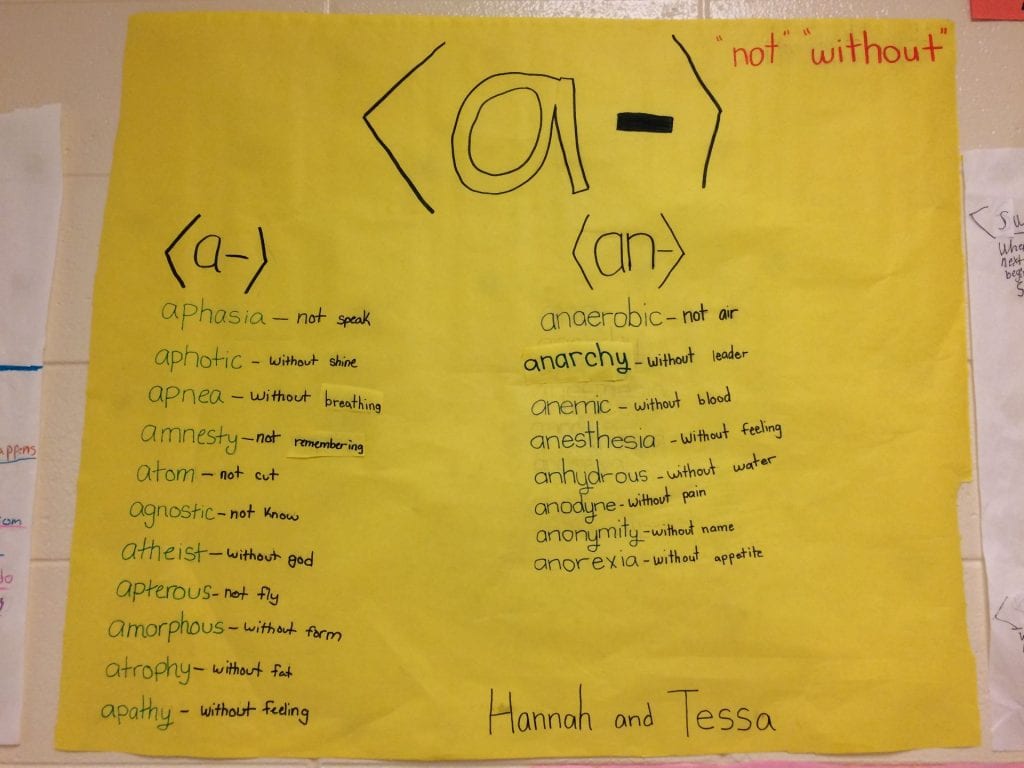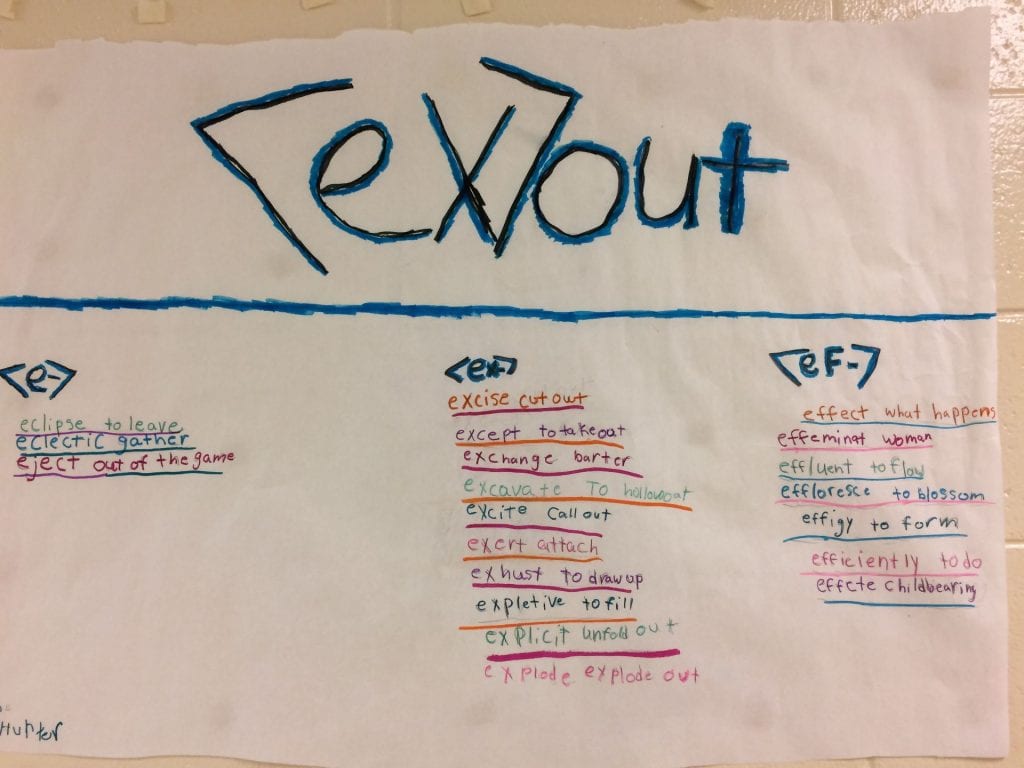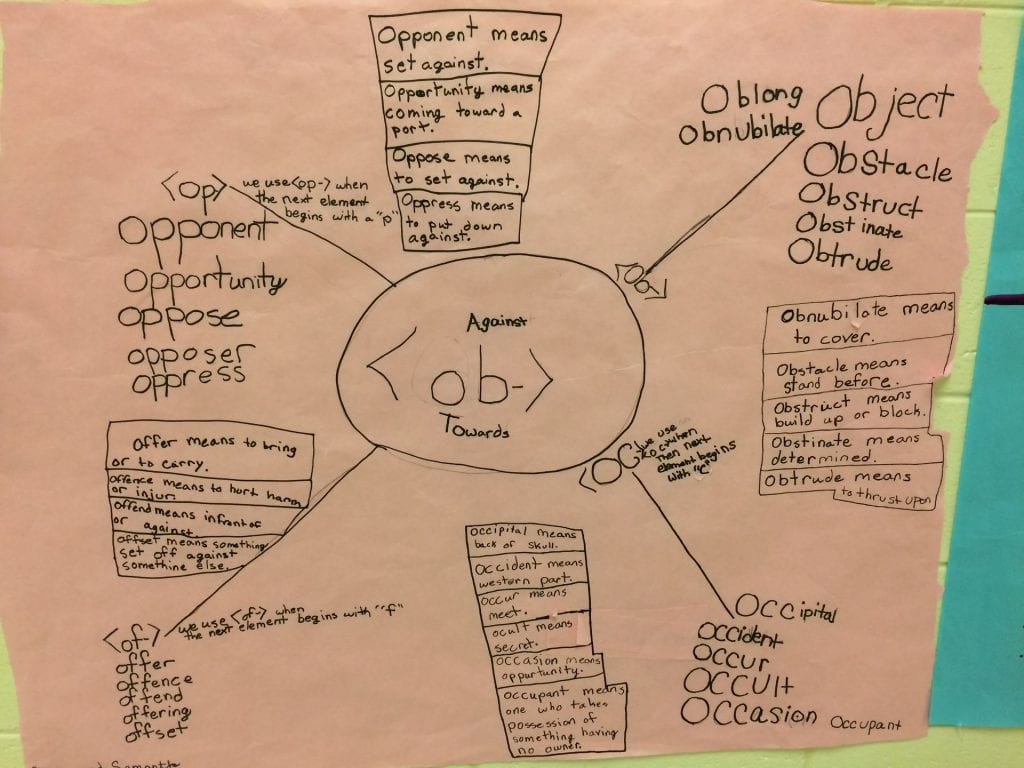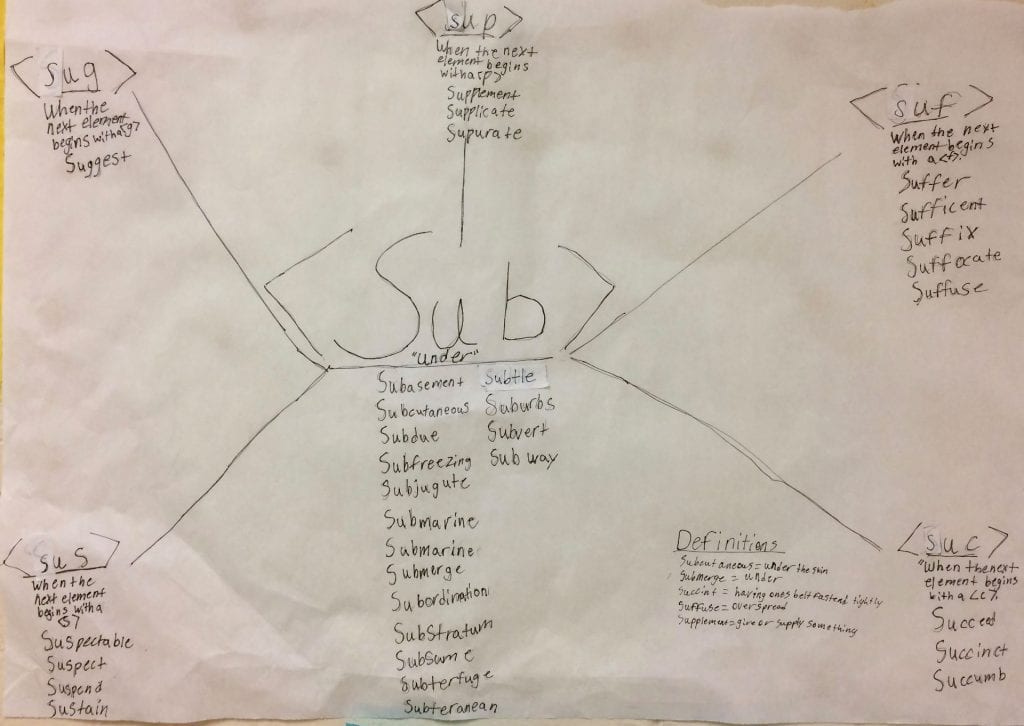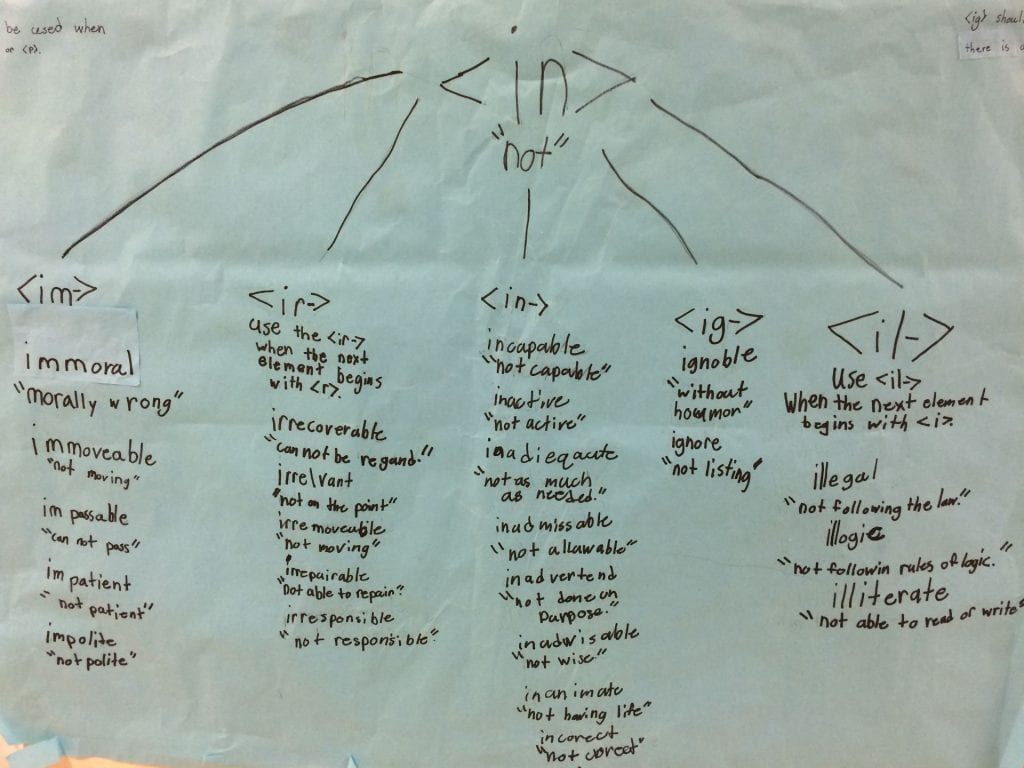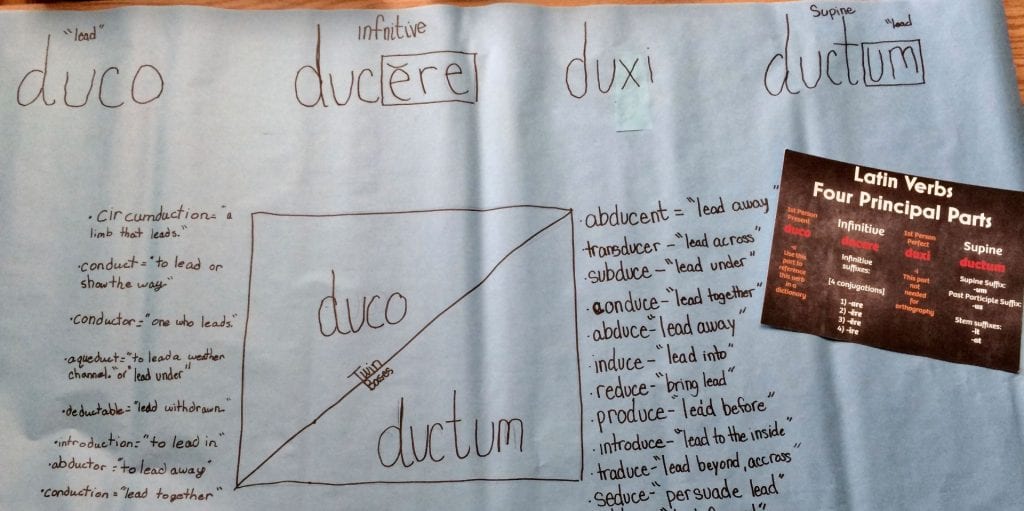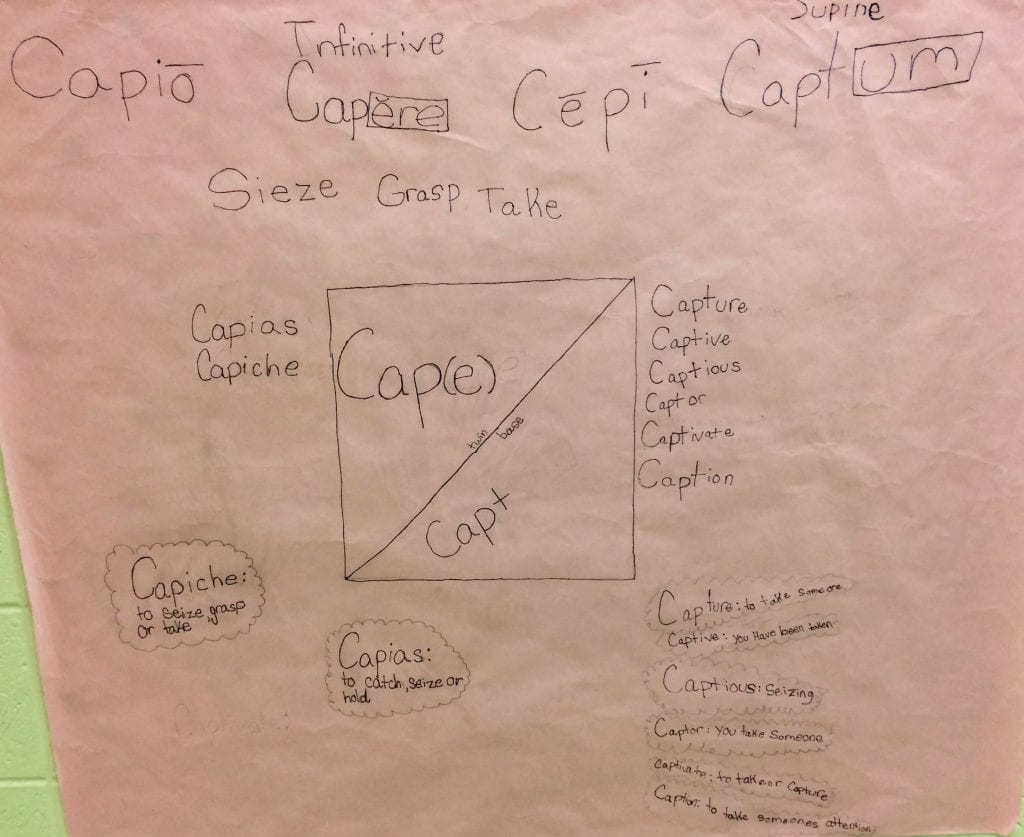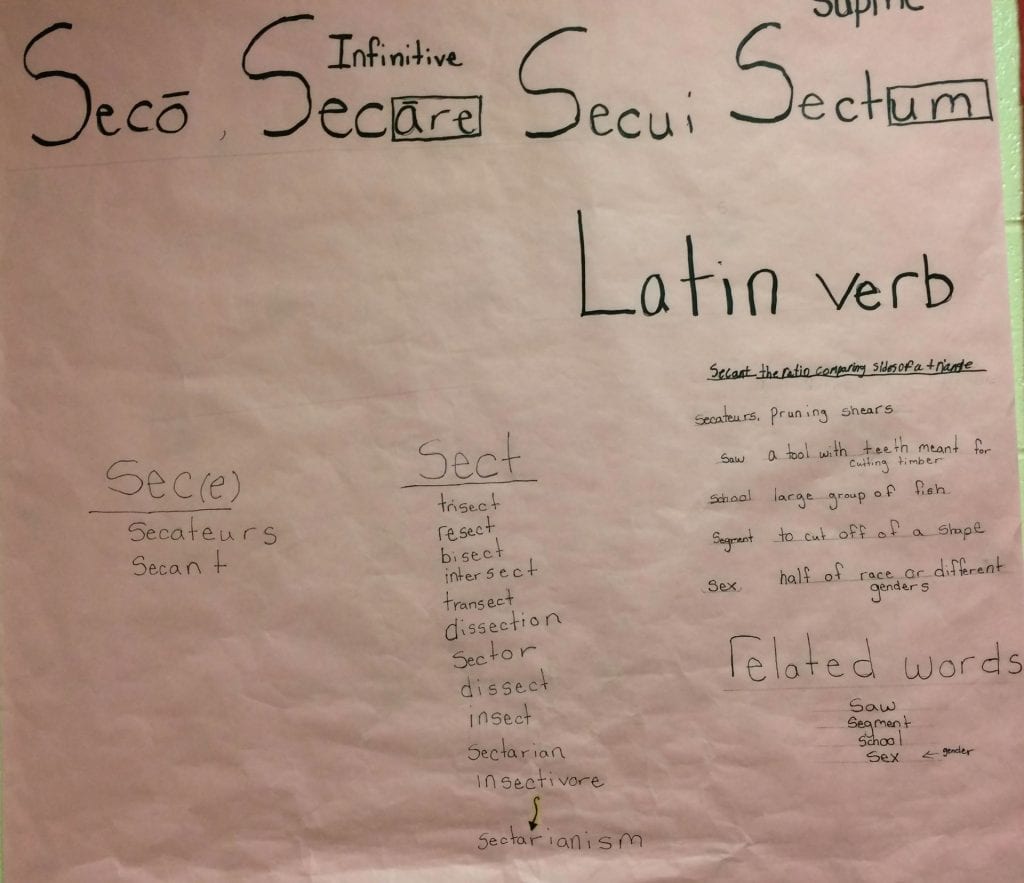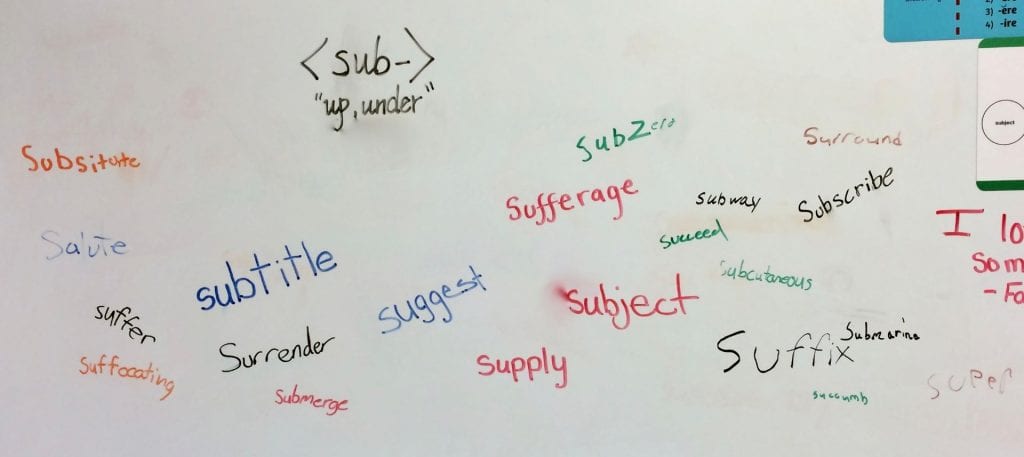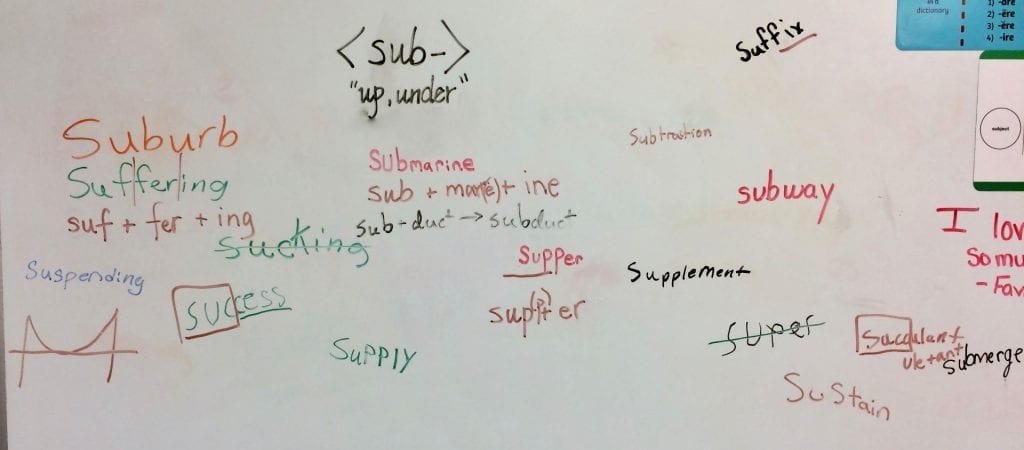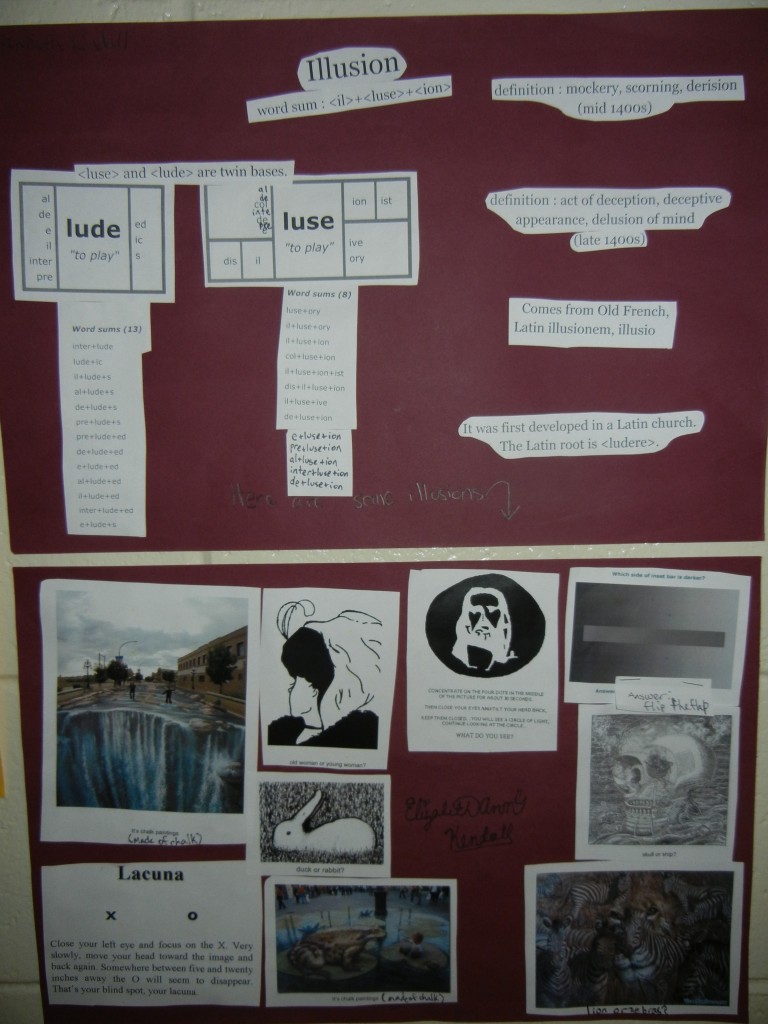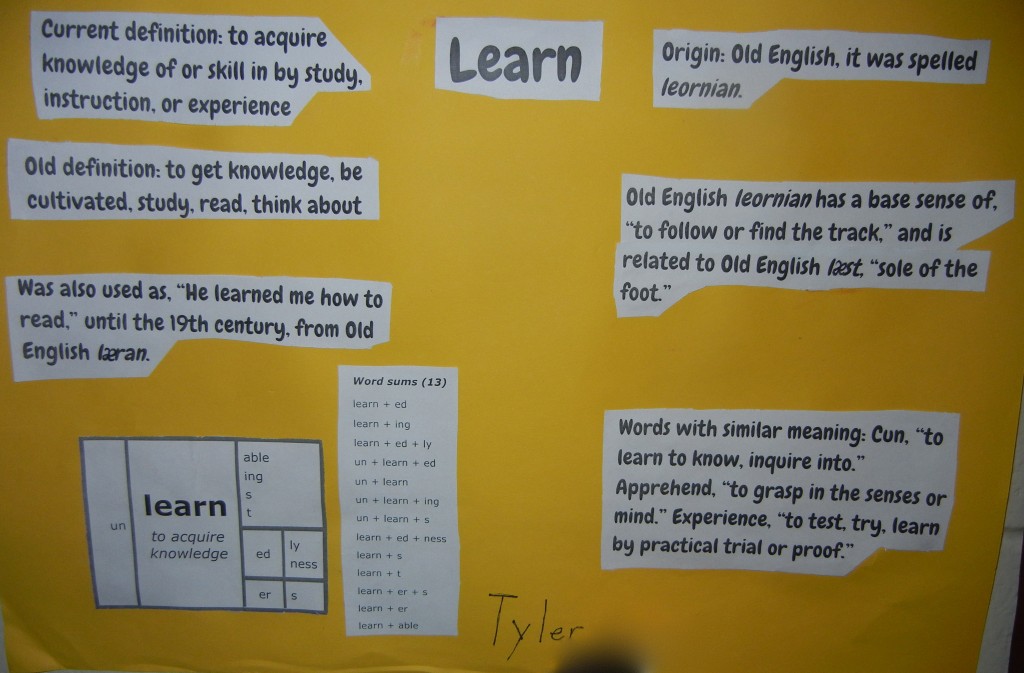Sitting at my desk, I’ve always had a clear view down the hallway. Each morning I heard the excited voices of the children seconds before they turned the corner and headed towards my room. One morning there was a student in the lead who wasn’t in the habit of being in the lead. I noticed but didn’t think too much of it. That is until the student came right into my room, even before going to her locker! And even before I could greet her, she asked, “Do you think that pediatrician and pedestrian have the same base?”
It’s a question I will never forget. Imagine! This student had two words in her head that seemed to share a base. She wasn’t quite sure about what meaning they shared and that was why she was there, asking me that question before she did anything else to begin her school day! I was thrilled that the question came from her own noticing of words while away from school. The curiosity and questioning I was hoping to nurture was evidently taking hold! All I remember besides her urgency and her question was that I didn’t have an immediate answer for her. But then she knew well enough that I didn’t always have an immediate answer to most word questions. (Sometimes I genuinely didn’t know, and sometimes I pretended I didn’t know so as to let the student own the moment of discovery.) She also knew I would be excited by the question and would partner with her to see what we could find out by talking about the words, thinking of other words that were possibly related and then looking in the references. As I recall, we looked at the words, talked about their meanings and how we use them, and decided they were probably not sharing a base. But because it appeared that they did, we checked with Etymonline to see if we could figure out the most likely base of each.
We knew that a pedestrian was a person who traveled by foot. We related the <ped> to bicycle pedals, the place where we put and also push with our feet. We also thought of a pedometer since the physical education teacher at our school had purchased a set for the students to use while in their gym class so they could measure how many steps they were taking. We wondered aloud if a pediatrician was a doctor who specialized in people’s feet, but were doubtful because we had heard of children going to a pediatrician and not because of anything to do with their feet. Was it the same base? The only way to know for sure was to head to Etymonline.
We saw that the noun ‘pediatrician,’ was first the adjective ‘pediatric.’ That information alone helped us understand that <-ian> was a suffix in this word. As an adjective the word ‘pediatric’ was coined in 1849 and referred to “of or pertaining to the medical care or diseases of children.” The base <ped> derives from the Greek παΐς (pais) “child.” According to the Cambridge Greek Lexicon, there was a dialectal difference that resulted in πης (pes) male and πηδός (pedos) female. The second base in this word is <iatr> which derives from Greek ιατρός (iatros) “physician, healer.” What other words can we think of that share this base?
pediatrician – one who specializes in the medical care or diseases of children.
orthopedics – (Do you recognize <orth> meaning “straight, correct” from the word ‘orthography?’) Correcting bodily deformities of children or of people in general.
pedophile – One who has an abnormal love of children (often sexual).
encyclopedia – Originally (in Greek) it meant training a child in a circle of the arts and sciences. Do you see the morphemes in the word that represent those senses? First there’s <en> “in” and then <cycl> “circle.” According to Etymonline it is now thought that Latin authors misinterpreted this word to mean “general education.”
pedagogy – The science of teaching children (originally referred to boys more than girls).
An interesting statement to note from Etymonline is this. “The British form paed- is better because it avoids confusion with the ped- that means “foot” (from PIE root *ped-) and the ped- that means “soil, ground, earth.” You may have seen the British spelling of pediatrician as paediatrician. While it is clarifying to have that British spelling explained, this statement also brings up a new question regarding a <ped> base that means soil, ground, earth. I’ve never heard of it. What words might I know that have it?
I found one quite by accident. Pedology. When I was looking for words that share the base <ped> “child,” I ran across it and assumed it meant “the study of children.” Well, it actually was used that way at one time (1894). But in 1924, its use became specific to “scientific study of the soil” based on the German word pedologie from 1862. Ultimately the base in this word derives from Greek πέδον (pedon) “surface of the earth, ground, earth.” According to Wikipedia, pedology “focuses on understanding and characterizing soil formation, evolution, and the theoretical frameworks through which we understand a soil body(s), often in the context of the natural environment.” Knowing its root makes it obvious that pedology couldn’t have anything to do with children – even if they sometimes get covered in dirt!
Next we decided to confirm what we felt sure of with ‘pedestrian.’ According to Etymonline, there is evidence of it being used more commonly as an adjective before it was used as a noun. Its adjective use has been attested as early as 1610 (Oxford English Dictionary). Interestingly enough, at that time it was used to refer to something as dull and plain. So if your writing was described as pedestrian, there was nothing out of the ordinary about it. At the OED I found this sentence from a 1969 writing. “Failing to live up to its sudden notoriety, the series has nothing to offer; just another pedestrian crime yarn.”
That sense of plain or dull comes from the literal sense of this word which has to do with traveling by foot. It was the expected thing to do before the invention of automobiles or bicycles unless you happened to have a horse! In fact, the word pedestrian can be compared to equestrian. Are you noticing the similarities in the second half of each word (-estrian)? In Latin, the word pedester was used when referring to foot soldiers. And as Etymonline shows us, you can contrast pedester “on foot” with equester “on horseback.”
The base here is not from Greek like the <ped> base (<paed> in British English) in pediatrician and the <ped> base in pedology. It is from Latin pedis “foot.”
pedestrian – A person who is walking (noun use). Something expected or plain (adj. use).
pedometer – A device that measures the distance walked.
pedals – The part on which you push with your feet.
pedicure – A treatment for the care of one’s feet.
expedite – To hasten. Literally, “to free the feet from fetters.”
impede – For something to be in the way. Literally, “to shackle the feet.”
centipede – A long, thin arthropod with many legs.
biped – Animal with two feet.
pedestrianism – Walking as exercise or as a competitive sport.
Have you noticed that I included a final potential <e> on the base in this matrix? A final <e> is always potential, and this word family illustrates that beautifully. In words like ‘centipede’ and ‘impede’ that final <e> has reached its potential and is part of the base. Notice how it signals the pronunciation of the previous ‘e’ in an expected way (/i/). In words like ‘biped’ and ‘quadruped’ that ‘e’ is not part of the base. And because it isn’t part of the base, the ‘e’ in this base is pronounced as /ɛ/ in words like ‘biped’ and ‘quadruped.’
Recently I came across the word ‘pedestrianism’ and since it was unfamiliar to me, I had a closer look. I found it when listening to a podcast. Immediately it brought this whole wonderful investigation of <ped> to life once more. It’s like one of my students said, “In orthography, you can explore words and come back to them as many times as you want, and it, like, never stops. But in spelling, once you memorize the word, the door is shut. You don’t need to go back. It’s done.” The student was spot on. Here I am revisiting what I understood previously and adding to it!
The podcast was called “Pedestrianism: When Watching People Walk Was America’s Favorite Spectator Sport.” , and it took me by surprise! I had heard of the dance marathons of the 1930s, but I hadn’t heard of competitive walking like this! According to a second article I read ( The strange 19th-Century sport that was cooler than football), what started as a bet in 1859, grew to a competitive sport that drew crowds as large as 10,000 by 1879! The original bet centered around a worker, Edward Payson Weston, who had missed a delivery truck and walked a long distance to catch up to it. When he succeeded at that, he made another bet with a friend based on the outcome of the 1860 presidential election. He bet on Lincoln’s opponent, John Breckinridge, to win. As previously agreed upon, the loser had to walk from New York to Washington, D.C. to witness the inauguration. It took Mr. Weston ten days to get there, but when he did, the idea of endurance walking was born!
One of the biggest competitions was in 1879 and was held in the original Madison Square Gardens in New York. There were 13 athletes and around 10,000 spectators. Each athlete brought their own dieticians, trainers, doctors, and chefs. Why such an entourage? Because the expectation was that these athletes would walk a circular track for six days or until they had walked the equivalent of 450 miles! They were not allowed to leave the track, but they were allowed to have their own tent in which they could eat, drink, and nap during the walk. Whoever traveled the farthest in the time allowed was promised $25,000 dollars ($679,000 by today’s standards) and a belt of solid silver with the inscription, “Long Distance Champion of the World.” As you might imagine, there were many injuries and towards the end of the event the athletes were crawling, barely making their way around the track. It became less about athleticism and more about enduring exhaustion, pain, and injuries.
If I’ve piqued your interest, as mine was piqued, I recommend that you go to the links I’ve provided and learn more. Fascinating! It does make you wonder whether these pedestrianisms had been sort of romanticized over time, and when the Great Depression rolled around, someone suggested holding dance marathons as a way to raise (and win) money. The idea of testing endurance to such an extreme seems to be a common feature of both!
Image is available with the kind permission of www.kingofthepeds.com

Library of Congress Prints and Photographs Division, Public domain, via Wikimedia Commons
Dance marathons. How long would you last?

Photo Credit: Northwest Public Radio

